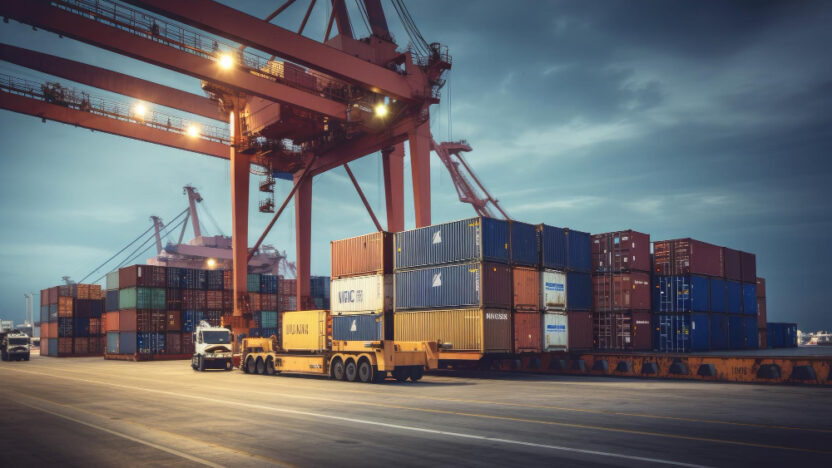Have you ever wondered if your current freight provider truly meets all your business requirements? Do you sometimes feel overwhelmed trying to navigate logistics quotes, transport modes, and customs regulations? We’re about to explore how finding the right freight partner can optimise your supply chain and help you save money in the long run.
Whether you’re a small online shop sending parcels across Australia or a larger enterprise shipping products overseas, the principles remain the same. The goal is to pick a reliable, cost-effective partner that keeps your goods safe and keeps you informed. Ready to dive in? Let’s get stuck into how to choose the right freight company for your unique business needs.
Understanding Freight Companies in Melbourne
Freight companies in Melbourne play a vital role in today’s interconnected world. They handle everything from picking up your goods to ensuring they reach their final destination, whether it’s across town or on the other side of the globe. But how do these companies operate, and why are they essential for businesses of all sizes?
What Services Do Freight Companies Provide?
Freight companies typically offer a range of services that include shipping coordination, customs clearance, warehousing, and distribution. They may also provide consultancy to help you plan shipment routes, track timelines, and explore ways to reduce costs. Some specialise in certain industries, such as perishable goods, while others handle oversized or hazardous cargo.
Beyond merely moving items, skilled freight operators can advise you on packaging, labelling, and even insurance coverage. This comprehensive support is especially useful if you’re new to large-scale shipping or if your business relies on consistent, timely deliveries.
How Freight Forwarding Differs from Other Shipping Methods
Freight forwarding stands out because it’s more than a simple pick-up and drop-off service. A freight forwarder acts as the middleman between you and various transport logistics providers airlines, shipping lines, railway operators, or trucking companies. They negotiate rates and coordinate schedules, so you don’t have to juggle multiple carriers on your own.
Compared to using a direct carrier, working with a forwarder often leads to cost savings and smoother communication. Plus, you’ll benefit from their extensive knowledge of customs procedures, trade agreements, and top freight routes. By comparison, handling these elements on your own can be time-consuming and confusing, particularly for complex or international shipments.
Determining Your Business Needs
Before jumping into contracts or negotiations, it’s crucial to identify exactly what your business requires. Pinpointing the type of shipments you send, the frequency of deliveries, and your budgetary constraints will guide you toward the right freight solution.
Assessing Shipment Size, Destination, and Frequency
Start by looking into the nature of your shipments. Are they small parcels, bulky pallets, or temperature-sensitive containers? Next, consider the regularity of your shipments—do they go out daily, weekly, or monthly? Finally, think about your geographic reach. If most deliveries stay within metro Melbourne, a local operator might suffice. However, for interstate or overseas routes, you’ll want a provider that can handle multiple transport modes and offer customs support.
Understanding these details will help you select a freight partner who aligns with your typical volumes and destinations. That way, you won’t be paying for capacity you don’t need, nor will you encounter unexpected limitations when your delivery schedule ramps up.
Budgeting and Cost Expectations
Proper budgeting goes beyond looking at the initial shipping quote. Factors like fuel surcharges, customs duties, and handling charges can significantly affect your overall costs. In the early stages, ask potential freight companies for a breakdown of fees. This helps you spot hidden charges and compare quotes on an apples-to-apples basis.
What’s more, consider the difference between the cheapest and the best-value service. Sometimes paying slightly more for reliable, timely deliveries is worth it in terms of customer satisfaction and reduced risk of damage or delays. Balancing quality with cost is key to running a profitable operation.
Industry-Specific Requirements
Industries vary in their logistics needs. Shipping plants and perishable goods? You’ll need refrigerated transport. Sending internationally regulated products, such as pharmaceuticals? Then you must look for providers with compliance knowledge and the right certifications.
Understanding any specialised documentation, labelling, or handling rules upfront makes your shipments more straightforward. Additionally, working with a freight partner who has served businesses in your field often means they can troubleshoot potential issues before they become major headaches.
Factors to Consider When Choosing a Freight Companies
Your decision shouldn’t hinge on price alone. Other elements—like reputation, tracking ability, and insurance coverage play a massive role in your overall satisfaction. Let’s break down a few key factors to pay attention to when searching for freight companies in Melbourne.
Transport Modes: Road, Rail, Air, and Sea
Freight can travel by road, rail, air, or sea. Each mode has unique advantages. Road transport is generally flexible for local or interstate shipments, while rail is often cost-effective for large volumes. Air freight is the fastest but also the most expensive, making it an option for urgent deliveries. Sea freight is ideal for big international orders when time isn’t a pressing concern.
The best freight companies can mix and match these modes to offer you the highest possible service level. Understanding which mode suits your product type, delivery timeline, and budget ensures you find a company that drives better efficiency and results for your business.
Reputation, Reviews, and Reliability
Checking online reviews and testimonials is a good starting point, but consider going one step further. Ask for references or examples of previous shipments that mirror your own needs. Speak to other clients if you can, and gauge how the freight provider handles challenges like delays or last-minute changes.
A reliable freight forwarder will give you straightforward answers to your questions and won’t hide behind vague promises. Look for transparency on pricing, delivery schedules, and customer support policies. Reliability ultimately translates to fewer headaches in your daily operations.
Tracking and Communication Methods
In today’s digital sphere, real-time tracking is an absolute must. Whether you’re shipping a single pallet or a large container, you want to know where your goods are at all times. Frequent updates either via email, online dashboards, or mobile apps make it easier for you to keep your end customers informed as well.
On top of that, good communication isn’t just about technology. It’s also about responsiveness from your freight partner. If something unexpected happens a delay at customs, for example you’ll appreciate working with a team that proactively alerts you and offers solutions, rather than leaving you in the dark.
Insurance and Liability Protection
Insurance can feel like just another expense, but having it in place offers peace of mind. Even well-packaged goods can get damaged in transit. Find out what level of coverage is offered by default and whether you need extra protection for high-value cargo. Some freight companies may partner with insurance providers to give you a seamless way to insure your shipments.
Make sure that liabilities are clearly outlined in your contract. If a shipment is lost or damaged, how does the claims process work? Is there a time limit on filing a complaint? Knowing these details upfront keeps your business protected against unforeseen incidents.
Tips for Selecting the Right Freight Companies
Choosing the right freight partner is a long-term commitment that can significantly influence your business growth. Beyond pricing, factors like compliance, relationship-building, and ongoing support should shape your final decision.
Verifying Certifications and Compliance
Different commodities require different certifications. For instance, if you’re shipping chemicals, you’ll need a provider compliant with hazardous goods regulations. If you’re exporting agricultural products, certain quarantine and biosecurity requirements apply. Make sure that your chosen freight company has a proven track record of navigating these rules without hiccups.
Don’t hesitate to ask for official documents that confirm compliance with government and industry standards. This step is especially vital if you’re targeting international markets where regulations can vary widely by country.
Negotiating Pricing and Contracts
Negotiation isn’t about endlessly haggling for the lowest price. It’s about establishing mutually beneficial terms that set you and your provider up for success. Focus on both cost and service level. For example, you might agree on a slightly higher rate if it includes priority handling or more frequent shipments.
Always review contract clauses that deal with surcharges and rate increases. Some providers lock in prices for a set period, while others adjust them based on market conditions. Being clear on these details helps you forecast expenses and avoid budget surprises.
Building Long-Term Relationships
Although finding a reliable freight partner can take time, the rewards are worth the effort. A strong, ongoing relationship often means better rates, smoother communication, and more personalised service. Your freight partner develops an understanding of your business cycles, helping you anticipate seasonal or product-specific spikes in shipping needs.
Plus, a seasoned freight companies can provide strategic advice on packaging solutions, routing, and even ways to make your supply chain more environmentally friendly. Collaboration and trust lead to fewer mistakes and stronger results over the long haul.
Conclusion
Ultimately, choosing the right freight companies boils down to diligently evaluating what you need and aligning that with a company that meets or exceeds your expectations. From sorting out which transport modes make the most sense to reviewing contract clauses in detail, every step contributes to a more streamlined, cost-effective logistics operation.



